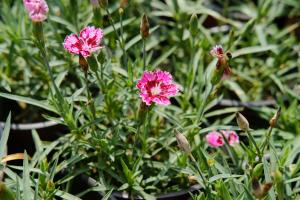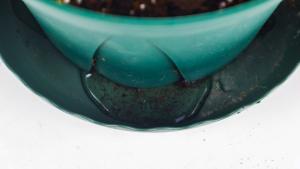How Much Nitrogen Do Potted Nursery Plants Need?
Nitrogen is an essential nutrient for all plants, including potted nursery plants. It plays a crucial role in the growth and development of leaves, stems, and roots. Without sufficient nitrogen, plants will struggle to create the energy necessary to produce new growth, and their overall health and productivity may suffer. But how much nitrogen should you be adding to your potted nursery plants, and how can you ensure they're getting enough?
The Importance of Nitrogen for Potted Nursery Plants
As mentioned, nitrogen is an essential nutrient for plants. It's a primary component of chlorophyll, the compound responsible for photosynthesis, which is the process that converts sunlight into energy. Without chlorophyll, plants will not be able to grow and will eventually die. Nitrogen is also a building block for amino acids, which are essential for the formation of proteins, enzymes, and other essential plant components.
The Recommended Nitrogen Levels for Potted Nursery Plants
The recommended nitrogen levels for potted nursery plants can vary depending on the type of plant, its growth stage, and the soil type. Generally speaking, most potted nursery plants require a nitrogen level of between 200 and 400 ppm (parts per million). However, it's important to note that too much nitrogen can be just as harmful as too little, leading to excessive shoot growth and reduced root development.
How to Test Your Soil Nitrogen Levels
The best way to ensure that your potted nursery plants are receiving the correct amount of nitrogen is to perform a soil test. Soil-testing kits can be purchased at most garden centers and will typically include instructions on how to collect the sample and perform the test. Once you have your test results, you can adjust your nitrogen levels accordingly.
How to Add Nitrogen to Your Potted Nursery Plants
There are several different ways to add nitrogen to your potted nursery plants depending on your preferences and the specific needs of your plants. One option is to use a nitrogen-rich fertilizer. These fertilizers can be purchased at most garden centers and can be applied directly to the soil. Alternatively, you can use organic fertilizers such as compost or manure, which will also provide nitrogen to your plants.
You can also incorporate nitrogen-rich amendments such as blood meal, bone meal, or feather meal into your potting mix. These amendments will slowly release nitrogen into the soil over time, providing your plants with a steady supply of nutrients. Just be sure to follow the recommended application rates and instructions carefully, as too much of these amendments can be harmful to your plants.
Conclusion
Nitrogen is an essential nutrient for potted nursery plants and plays a critical role in their growth and development. By ensuring that your plants are receiving the recommended levels of nitrogen, you can help them thrive and reach their full potential. Regular soil tests and appropriate fertilization techniques can help you ensure that your plants are receiving the nutrients they need and will help you provide them with the best possible growing environment.

 how many times do yo...
how many times do yo... how many planted tre...
how many planted tre... how many pine trees ...
how many pine trees ... how many pecan trees...
how many pecan trees... how many plants comp...
how many plants comp... how many plants can ...
how many plants can ... how many plants and ...
how many plants and ... how many pepper plan...
how many pepper plan...































